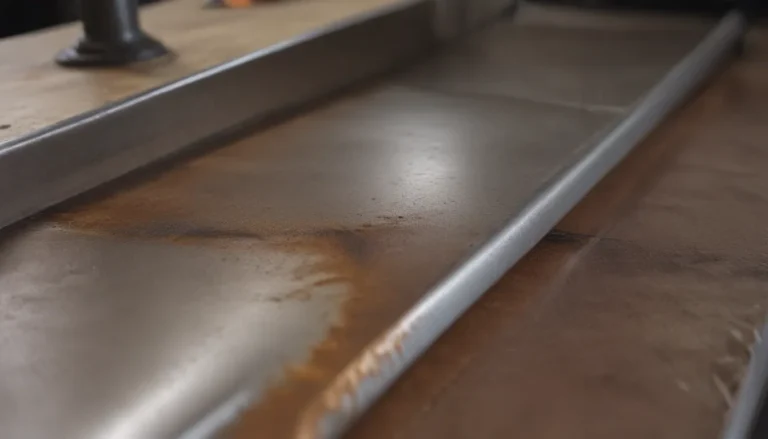How to Effectively Sell Used Clothes Online and In-Store

Are you in the process of decluttering your closet and have a pile of gently-used clothes that you no longer need? Rather than letting them gather dust or throwing them out, consider selling them to make some extra cash. With plenty of options available for selling your used clothing, it can be overwhelming to decide which route to take.
To help you navigate through the choices, we spoke to experts in the field who shared insights on the best places to sell used clothes online and locally. By understanding various factors such as the type of clothing you have, the amount of effort you’re willing to put in, and your ultimate goal, you can determine the most suitable selling method for you.
Factors to Consider Before Selling Your Clothes
Before diving into the world of selling used clothes, it’s crucial to consider a few key factors that can influence your decision:
- Type of Clothing: Identify the category your clothes fall into, whether they are designer, trendy/higher-value retailers, or discount/lower-value brands.
- Time and Effort: Determine how much time and effort you are willing to invest in selling your clothes. Are you looking to maximize your earnings, or are you simply trying to clear out your closet with minimal hassle?
By keeping these factors in mind, you can narrow down your options and choose the selling method that aligns best with your preferences and goals.
Where to Sell Used Clothes Online and In-Store
When it comes to selling your used clothes, you have a variety of avenues to explore. Here are some popular options to consider:
Online Platforms
- Poshmark: A popular online marketplace for buying and selling fashion items.
- ThredUp: An online consignment and thrift store offering a convenient way to sell secondhand clothing.
- Grailed: A platform focused on selling men’s clothing and streetwear.
- Depop: A social shopping app where users can buy and sell unique fashion items.
In-Store Locations
- Plato’s Closet: A chain of consignment stores that cater to young adults looking to buy and sell trendy clothing.
- Buffalo Exchange: A resale store that buys and sells a variety of clothing and accessories.
Exploring Local Consignment Stores
Local consignment stores provide a convenient option for selling your used clothes in exchange for cash. These stores typically operate on a percentage-based commission, where you receive a portion of the sale price once your item sells. It’s essential to understand the terms of the consignment agreement, including pricing, discount policies, and item retrieval options.
According to experts, consignment stores offer a higher percentage of the sale price compared to resale shops and provide a hassle-free selling experience for sellers of designer and high-quality items. When choosing a consignment store, consider the market value in the store’s community to maximize your chances of selling high-value items.
Leveraging Local Buy/Sell/Trade Stores
Local buy/sell/trade stores specialize in trendy items and typically offer upfront cash payments for clothing. While this selling method provides immediate cash, the trade-off may be lower values for your items. Sellers should be aware that these stores prioritize fast turnover and may have specific item preferences at any given time.
For those seeking a quick and straightforward selling process, local buy/sell/trade stores offer a convenient solution to offload unwanted clothing items.
Benefits of Resale Stores
Resale shops present an attractive option for sellers looking for instant cash payments. Unlike consignment models, resale stores pay sellers upfront upon completing the transaction. This immediate gratification eliminates the need to wait for items to sell before receiving payment.
With resale stores handling the financial risk, sellers can walk away with cash in hand without worrying about unsold or damaged items. Additionally, resale stores typically accept merchandise year-round, making it a convenient choice for individuals looking to sell items from all seasons.
How Online Resellers Work
Online reselling platforms provide sellers with control over the selling process, allowing them to photograph items, create listings, and interact directly with customers. While this method requires more effort on the seller’s part, it offers flexibility and potential for higher earnings.
According to experts, online resellers can maximize their profits by carefully managing listings, responding to buyer inquiries, and ensuring prompt shipping and handling. While certain platforms may charge fees for listing or transaction processing, sellers can reach a broader audience and retain a higher percentage of earnings through online reselling.
Exploring Clothing Swaps as an Alternative
For individuals less concerned with monetary gain, clothing swaps offer a fun and sustainable way to exchange clothes with friends or online communities. Swap Society is a popular platform that facilitates clothing swaps and accepts a wide range of brands in exchange for points and a nominal fee.
By participating in clothing swaps, sellers can refresh their wardrobe while contributing to a circular fashion economy that promotes sustainability and community engagement.
Consider Individual Resellers for Quick Sales
If selling used clothes feels like too much of a hassle, consider reaching out to individual resellers who may be interested in purchasing your items directly. By collaborating with resellers in your network, you can streamline the selling process and potentially earn some cash without investing significant time and effort.
Ultimately, the best method for selling your used clothes will depend on your priorities, preferences, and desired outcome. Whether you opt for online platforms, local consignment stores, or individual resellers, exploring a variety of selling options can help you maximize your earnings while decluttering your closet effectively.





